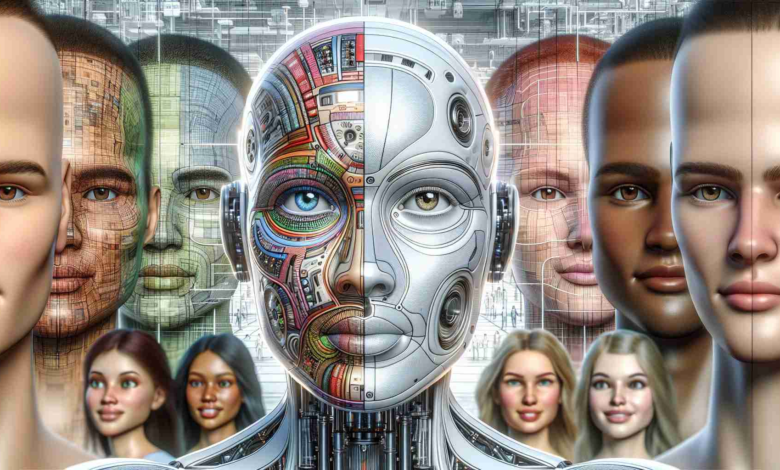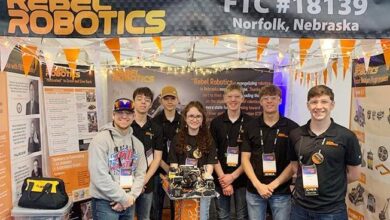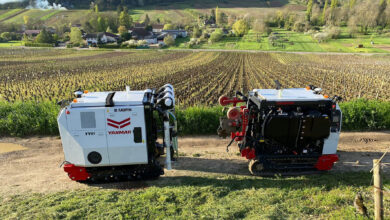Human Traits in Robotics Pave Way for Enhanced Interactions

Summary: A recent University of Waterloo study emphasizes the importance of personality matching in social robots, particularly in healthcare. The research highlights that individuals gravitate towards robots that mirror their traits, suggesting that future robots could be more effective if personalized to user preferences. This echoes the growing trend for tailored technology and points to personalization as a key strategy in social robotics design.
In a groundbreaking study at the University of Waterloo, researchers have unveiled an intriguing dimension to the interaction between humans and social robots. Professors Moojan Ghafurian and Kersten Dautenhahn spearheaded the research, revealing that individuals show preference for robots with similar characteristics to their own. This has significant implications across various applications, especially within the healthcare sector, where robots may soon be used to provide assistance and companionship.
The study involved participants evaluating images of robots on traits akin to kindness, activeness, and strength, mirroring the self-assessment on these characteristics. Particularly notable was the trend of participants to favor robots resembling their self-perceived traits for potential collaboration in healthcare settings.
This newfound understanding opens doors to customizing robots with the ability to modify their personality traits to match those of their human counterparts. Such customization could drastically improve the interactions between robots and people, fostering a more natural and comfortable connection.
The implications of this personalized approach extend far beyond healthcare. Educational sectors and eldercare are also poised to benefit from social robots tailored to individual characteristics. By ensuring robots make positive first impressions and appear approachable, the acceptance and integration of robotic technology into everyday life could accelerate, marking a pivotal step in the evolution of social robotics.
As social robots continue to permeate our daily lives, the insight from this study could inform a human-centric approach in the design and deployment of these intelligent machines, aligning technology with the nuanced spectrum of human personalities.
The implications of personality matching in social robots
The findings from the University of Waterloo study are profound, particularly as the social robotics industry grows exponentially. Their application in healthcare is just the beginning, as robots with the ability to exhibit human-like traits promise to revolutionize the way we interact with technology.
Market forecasts suggest that the social robot industry is expected to witness substantial growth in the coming years. Factors such as the increase in the aging population, advancements in artificial intelligence, and a growing emphasis on patient-centered healthcare contribute to the demand for these robots. According to industry analysts, the global social robots market could see a compound annual growth rate (CAGR) of significant percentage points across the next decade.
However, as with any burgeoning industry, there are issues that need to be addressed. One challenge is the ethical consideration of creating machines that mimic human behaviors. There are also concerns about privacy, data security, and the potential loss of jobs as robots become more capable of performing tasks traditionally handled by humans. Additionally, the significant costs associated with developing and maintaining advanced robotic systems can be a barrier to entry for certain sectors.
Despite these challenges, the benefits of personalized social robots, particularly in sectors such as education and eldercare, demonstrate the potential for these innovations to significantly enhance the quality of life for many individuals. In educational settings, social robots can be customized to better engage with students, taking into account individual learning styles and personalities. In eldercare, robots with the capacity for emotional intelligence can provide companionship and monitor health conditions, offering peace of mind to family members and caregivers.
Industry leaders are keenly observing these trends, and R&D investments are pouring into the social robotics sector. For instance, companies like SoftBank Robotics and Blue Frog Robotics are making strides in bringing personal robots to the market that can serve as educators, companions, or healthcare aides.
Referencing the vast potential of this industry, it is crucial for companies, educators, healthcare providers, and policymakers to consider the social and ethical dimensions of personalized robots. The human-centric approach suggested by the University of Waterloo’s research could well be the guiding principle for the next wave of technological advancement, ensuring that as robots continue to advance, they do so with the enrichment of human experience as a central goal.
To gain more insights about the potential of personalized social robots and how they are shaping our future interactions with technology, interested readers may explore further on reputable websites like IEEE, Robotic Industries Association, and International Federation of Robotics. These platforms offer a wealth of information on the latest in robotics research, market predictions, and ethical discussions surrounding the integration of robots into society.

Leokadia Głogulska is an emerging figure in the field of environmental technology, known for her groundbreaking work in developing sustainable urban infrastructure solutions. Her research focuses on integrating green technologies in urban planning, aiming to reduce environmental impact while enhancing livability in cities. Głogulska’s innovative approaches to renewable energy usage, waste management, and eco-friendly transportation systems have garnered attention for their practicality and effectiveness. Her contributions are increasingly influential in shaping policies and practices towards more sustainable and resilient urban environments.



